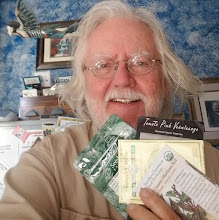Hi
folks fresh from being evicted by the Los Angeles Police Department,
v.2.0.
Some
of your are needing bail and some of you are missing stuff and some
of you have your pride a little dented, but you were good. All eyes
have been on you for several months and (after a long silence the
media finally figured out you were there and worth reporting). You
made a big statement about the 99% and the 1%. Now that your
encampment is gone, I wonder what's next for you?
Already
I've heard reports that some of you are showing up in a park near
downtown LA with tents and camping gear to carry on delivery of the
message. Some will carry on – and maybe a few new folks will join
them – but the demonstration, despite your words to the contrary,
cannot go on until things change. 'Things' take very long to change.
You have lives you must continue and a camping expedition won't
contain that for very long.
I
have 'occupied' for a very long time. It's different for me. I
believe you when you decry the mon ey in
politics and the lame economic system that has developed to make the
rich richer and keep the poor downtrodden and full of sugar and TV.
Yet, my occupation has been doing something that allows me to live my
life on a daily basis, participate as little as possible in the
oppression you decry and to fight for economic change in a way that
is ongoing and sustainable.
I
garden.
I
save my own seed.
And
I don’t shop where I believe my money is going to further oppress
people from anywhere in the world. I may not be right all the time,
but I make a concerted effort to be informed and try to be right.
It
doesn't get me on TV and reporters don't come around and poke mics in
my face and ask insipid questions. I am not a media event and what I
do doesn't feel all that revolutionary because I just go about living
my life. Yet the damage I do to the system is real and sustainable
day in and day out. And I'm not alone.
So,
dear occupiers, I invite you to join me in an occupy that requires
you to change as much as the system you want to change, for, in fact,
didn't Gandhi say, “Be the change you desire?” The changes that
have to be made have to go beyond using a credit union instead of big
national bank (thank you for that one, by the way). It means
changing your food market – the way you consume and the way you
recycle and your entertainment source.
It
means going local. All the way.
Local
banking. Local food sourcing. Local music – the band down the
street. Live music from your neighbors. Local art. Local energy.
Local travel. Nothing is more local than your own garden. Local is
everything 'they' don't want. Local is real. Local is powerful.
Local is hope. Local is community. Local is support when times
suck. Local is celebration when life is abundant. Local is an
economy. Local is a farmers' market. Local is a seed bank. Local
is a party, not affiliated with politics or national agendas. Local
is someone you can talk face to face with. Local is kissing. Local
is a hug. Local is smelling the flowers. Local is asking why there
are no bike lanes. Local is eating bread fresh from the oven.
Local is looking into someone's eyes and touching their core – or
letting them touch yours. Local is personal. Local is a solution that solves many
problems. Local chews up liars and spits them out. Local celebrates
the local garden. Local tastes fresh. Local looks you the face and
asks for a buck. Local pats you on the back and says thanks. Local
smells like a rose. Local means you need to stand up for peace and
safety. Local means you can't hide behind being one of the great
unwashed mass. Local means you either really care or you're just
full of shit. Local means you give to your favorite local charity.
Local means you can say hi to someone you know (fine, thanks, how 'bout you?). Local means more
Mom and Pop shops and less K-mart and Walmart. Local means the
profits stay local. Local means no McDonalds. Local means organic.
Local means less is more. Local means economics as though people
matter. Local means here. Local means now.
Not
everything can be local – just try to get me to give up my coffee.
But I can get coffee that shows some respect to the folks that grew
it. The bottom line is, we have to live a conscious life. No longer
can the boob tube show us an ad and we run out to buy the latest
piece of crap. Today, we honor ourselves and our earth by turning
away from the consumptive creatures of need we have been, into
producers and creators of the life we wish to live and wish to export
to the world around us.
So,
are you willing to truly 'occupy' the spaces of your own life? Are
you?
There
is much to be done today. Lets get busy!
david
















.jpg)